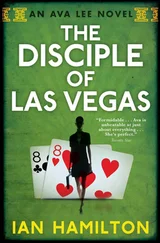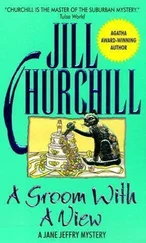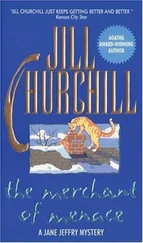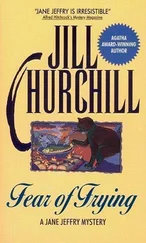Winston Churchill - Ian Hamilton's March
Здесь есть возможность читать онлайн «Winston Churchill - Ian Hamilton's March» весь текст электронной книги совершенно бесплатно (целиком полную версию без сокращений). В некоторых случаях можно слушать аудио, скачать через торрент в формате fb2 и присутствует краткое содержание. Год выпуска: 2018, Издательство: epubBooks Classics, Жанр: История, Прочая документальная литература, на английском языке. Описание произведения, (предисловие) а так же отзывы посетителей доступны на портале библиотеки ЛибКат.
- Название:Ian Hamilton's March
- Автор:
- Издательство:epubBooks Classics
- Жанр:
- Год:2018
- ISBN:нет данных
- Рейтинг книги:4 / 5. Голосов: 1
-
Избранное:Добавить в избранное
- Отзывы:
-
Ваша оценка:
- 80
- 1
- 2
- 3
- 4
- 5
Ian Hamilton's March: краткое содержание, описание и аннотация
Предлагаем к чтению аннотацию, описание, краткое содержание или предисловие (зависит от того, что написал сам автор книги «Ian Hamilton's March»). Если вы не нашли необходимую информацию о книге — напишите в комментариях, мы постараемся отыскать её.
London to Ladysmith
Ian Hamilton's March — читать онлайн бесплатно полную книгу (весь текст) целиком
Ниже представлен текст книги, разбитый по страницам. Система сохранения места последней прочитанной страницы, позволяет с удобством читать онлайн бесплатно книгу «Ian Hamilton's March», без необходимости каждый раз заново искать на чём Вы остановились. Поставьте закладку, и сможете в любой момент перейти на страницу, на которой закончили чтение.
Интервал:
Закладка:
The City Imperial Volunteers then occupied the whole of the wooded ridge. One poor little boy, scarcely fourteen years old, was found shot through the head, but still living, and his father, a very respectable–looking man, who, in spite of his orders from the field–cornet, had refused to leave his son, was captured; but with these exceptions the Boers had removed their wounded and made good their retreat to the main position. It being now nearly dark the action was broken off, and having strongly picketed the ground they had won, the Infantry returned to their waggons for the night.
It was now imperative to carry the matter through, and in view of the unexpected obstinacy of the enemy, the Field–Marshal directed Pole–Carew to support Hamilton with the brigade of Guards in his attack the next day.
Early the next morning Hamilton's Infantry moved forward and re–occupied the whole of the ground picketed the previous night. On the right De Lisle's corps of Mounted Infantry prepared to attack; the Cavalry maintained their wedge–like position, and exchanged shots all along their front with the Boers; but no serious operations were begun during the morning, it being thought better to await the arrival, or, at least, the approach, of the brigade which had been promised.
During this interval the Boers shelled our batteries heavily with their long range 30–pounder guns, and General Ian Hamilton, who was sitting on the ground with his Staff near the 82nd Field Battery, was struck by a shrapnel bullet on the left shoulder. Fortunately, the missile did not penetrate, but only caused a severe bruise with numbness and pain, which did not, however, make it necessary for him to leave the field. The case of this shell, which struck close by, ran twirling along the ground like a rabbit—a very peculiar sight, the like of which I have never seen before.
At one o'clock the leading battalion of the Guards was observed to be about four miles off, and Bruce–Hamilton's brigade was therefore directed to attack. The Derbyshire Regiment, which had been briskly engaged during the morning, advanced up a flat tongue of land on the right. The City Imperial Volunteers moved forward in the centre, and the Sussex on the British left. Though this advance was exposed to a disagreeable enfilade fire from the Boer 'pom–pom,' the dispersed formations minimised the losses, and lodgments were effected all along the rim of the plateau. But once the troops had arrived here the fight assumed a very different complexion.
The top of the Diamond Hill plateau was swept by fire from a long rocky kopje about 1,800 yards distant from the edge, and was, moreover, partially enfiladed from the enemy's position on the right. The musketry immediately became loud and the fighting severe. The City Imperial Volunteers in the centre began to suffer loss, and had not the surface of the ground been strewn with stones, which afforded good cover, many would have been killed and wounded. Though it was not humanly possible to know from below what the ground on top of the hill was like—we were now being drawn into a regular rat–trap. It was quite evident that to press the attack to an assault at this point would involve very heavy loss of life, and, as the reader will see by looking at the rough plan I have made, the troops would become more and more exposed to enfilade and cross fire in proportion as they advanced.
After what I had seen in Natal the idea of bringing guns up on to the plateau to support the Infantry attack when at so close a range from the enemy's position seemed a very unpleasant one. But General Bruce–Hamilton did not hesitate, and at half–past three the 82nd Field Battery, having been dragged to the summit, came into action against the Boers on the rocky ridge at a distance of only 1,700 yards.
This thrusting forward of the guns undoubtedly settled the action. The result of their fire was immediately apparent. The bullets, which had hitherto been whistling through the air at the rate of perhaps fifteen or twenty to the minute, and which had compelled us all to lie close behind protecting stones, now greatly diminished, and it was possible to walk about with comparative immunity. But the battery which had reduced the fire, by keeping the enemy's heads down, drew most of what was left on themselves. Ten horses were shot in the moment of unlimbering, and during the two hours they remained in action, in spite of the protection afforded by the guns and waggons, a quarter of the gunners were hit. Nevertheless, the remainder continued to serve their pieces with machine–like precision, and displayed a composure and devotion which won them the unstinted admiration of all who saw the action.
About four o'clock General Ian Hamilton came himself to the top of the plateau, and orders were then given for the Coldstream Guards to prolong the line to the left, and for the Scots Guards to come into action in support of the right. Two more batteries were also brought forward, and the British musketry and artillery being now in great volume, the Boer fire was brought under control. Ian Hamilton did not choose to make the great sacrifices which would accompany an assault, however, nor did his brigadier suggest that one should be delivered, and the combatants therefore remained facing each other at the distance of about a mile, both sides firing heavily with musketry and artillery, until the sun sank and darkness set in.
General Pole–Carew, who with the Eighteenth Brigade was still responsible for containing the Boer centre across the railway, now rode over to Hamilton's force, and plans were made for the next day. It must have been a strange experience for these two young commanders, who, fifteen years ago, had served together as aides–de–camp on Lord Roberts's staff, to find themselves now under the same chief designing a great action as lieutenant–generals. It was decided that Hamilton's force should move further to the right and attack on the front, which, on the 12th, had been occupied by De Lisle's corps of Mounted Infantry, that the brigade of Guards should take over the ground which the Twenty–first Brigade had won and were picketing, and that the Eighteenth Brigade, which was now to be brought up, should prolong the line to the left. But these expectations of a general action on the morrow were fortunately disappointed. Worsted in the fire fight, with three parts of their position already captured, and with the lodgment effected by Colonel De Lisle's corps on the left threatening their line of retreat, the Boers shrank from renewing the conflict.
During the night they retreated in good order from the whole length of the position which they occupied, and marched eastward along the railway in four long columns. When morning broke and the silence proclaimed the British the victors, Hamilton, in order to carry out his original orders, marched northward and struck the railway at Elandsfontein station, where he halted. The Mounted Infantry and Cavalry were hurried on in pursuit, but so exhausted were their horses that they did not overtake the enemy.
Such were the operations of the 11th, 12th, and 13th of June, by which, at a cost of about 200 officers and men, the country round Pretoria for forty miles was cleared of the Boers, and a heavy blow dealt to the most powerful force that still keeps the field in the Transvaal.
After the action of Diamond Hill the whole army returned to Pretoria, leaving only a Mounted Infantry corps to hold the positions they had won to the eastward. French and Pole–Carew, whose troops had marched far and fought often, were given a much–needed rest. Ian Hamilton, whose force had marched further and fought more than either, was soon sent off on his travels again. The military exigencies forbade all relaxation, and only three days' breathing space was given to the lean infantry and the exhausted horses. By the unbroken success of his strategy Lord Roberts had laid the Boer Republics low. We had taken possession of the Rand, the bowels whence the hostile Government drew nourishment in gold and munitions of war. We had seized the heart at Bloemfontein, the brain at Pretoria. The greater part of the railways, the veins and nerves, that is to say, was in our hands. Yet, though mortally injured, the trunk still quivered convulsively, particularly the left leg, which, being heavily booted, had already struck us several painful and unexpected blows.
Читать дальшеИнтервал:
Закладка:
Похожие книги на «Ian Hamilton's March»
Представляем Вашему вниманию похожие книги на «Ian Hamilton's March» списком для выбора. Мы отобрали схожую по названию и смыслу литературу в надежде предоставить читателям больше вариантов отыскать новые, интересные, ещё непрочитанные произведения.
Обсуждение, отзывы о книге «Ian Hamilton's March» и просто собственные мнения читателей. Оставьте ваши комментарии, напишите, что Вы думаете о произведении, его смысле или главных героях. Укажите что конкретно понравилось, а что нет, и почему Вы так считаете.











